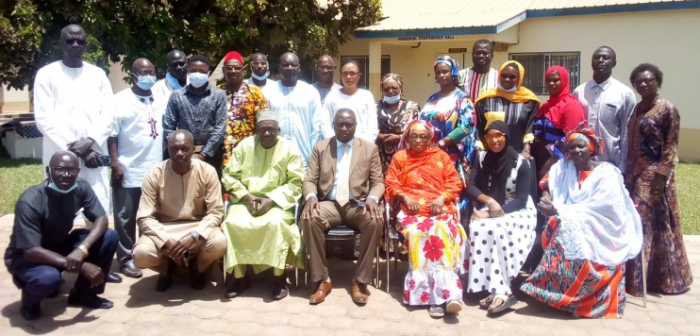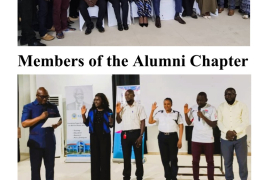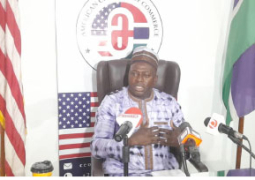
The Book Development Programme is one of the Pan African Teachers’ Centre’s (PATC) major activities designed to promote the culture of reading in schools by producing culturally relevant supplementary readers and distributing them to schools across the continent. This is done through a collaborative effort with its member organisations and their Ministries of Education.
The project also aims to develop the writing skills of local teachers; create culturally relevant readers for African children; facilitate the production and distribution of suitable readers; support learning, especially in deprived schools; and support national ‘Education For All’plans
PATC conducts specially designed writers’ workshops for teachers from member-teacher organisations. PATC also facilitates the distribution of the books by the host teacher organization and the Ministry of Education to schools, especially those in deprived areas.
Marie Antoinette Corr, General Secretary of The Gambia Teachers Union (GTU) recalled that process for the Book Development Programme started two years ago but had to be postponed due to the pandemic.
She expressed optimism that the project will yield abundant fruits, adding that PATC and GTU will continue to work with the MoBSE in order to closely align the content of the supplementary readers with the national curriculum.
Ismaila S. Ceesay, president of GTU said the book would help teachers as well as learners to improve on their reading skills.
“It is important that the materials we use in our school system factor our cultural dynamics and information that relates to our societal norms to help our children easily understand what they are learning.”
Mr. Ceesay observed that reading skills is currently a problem in our school system and assured that the books will ensure students develop their reading skills to improve their performance during their final exams at senior secondary school level.
Dennis Sinyolo, Education International Africa Regional Coordinator said Education International strongly believes that education is a fundamental human right and a public good.
He highlighted that education should, therefore, be made accessible and freely available to every child.
“To achieve equitable inclusive quality education for all, governments should ensure that education systems are sufficiently financed to provide quality education environments, quality teachers, and quality teaching and learning materials”, he added.
He cited that targets 4.6 and 4.7 of the UN’s Sustainable Development Goal 4 on quality education, to which The Gambia has subscribed, highlight the centrality of literacy, numeracy, and culture’s contribution to the achievement of sustainable development.
Teachers, he added, should not just be transmitters of knowledge, but creators and developers of reading materials, adding that teachers are not passive implementers of the curriculum, but agents of change.
He then appealed to the Ministry of Basic and Secondary Education to facilitate the publication, approval and distribution of the new materials to underprivileged schools, saying with that they will ensure no child is left behind in their quest for quality education for all.
Dr Pedi Anawi, Coordinator Pan African Teachers’ Centre’s (PATC) commended GTU for the successes registered on the project so far.
Louis Moses Mendy, permanent secretary at the Ministry of Basic and Secondary Education (MoBSE) said the launch of the Book Development Programmme could not have come at a better time, as they try to review the general curricular of the country.
PS Mendy said the books reflect realities in our lives and will help students understand what they are taught and improve their reading skills.
He observed that the history most people read in colleges and universities in The Gambia and other countries is foreign history and do not often reflect the morals and ethical backgrounds people and communities needto live together.
“However, if we write our own feelings and experience in books we produce, it reflects our morals and ensure we have responsible citizens.”
Other speakers included Hassoum Ceesay, Director General of the National Center for Arts and Cultureand Director of Curriculum at MoBSE, Momodou Jeng.
Read Other Articles In National News

KAIPTC launches Gambian Alumni Chapter to deepen regional peace
Jul 15, 2025, 12:06 PM




